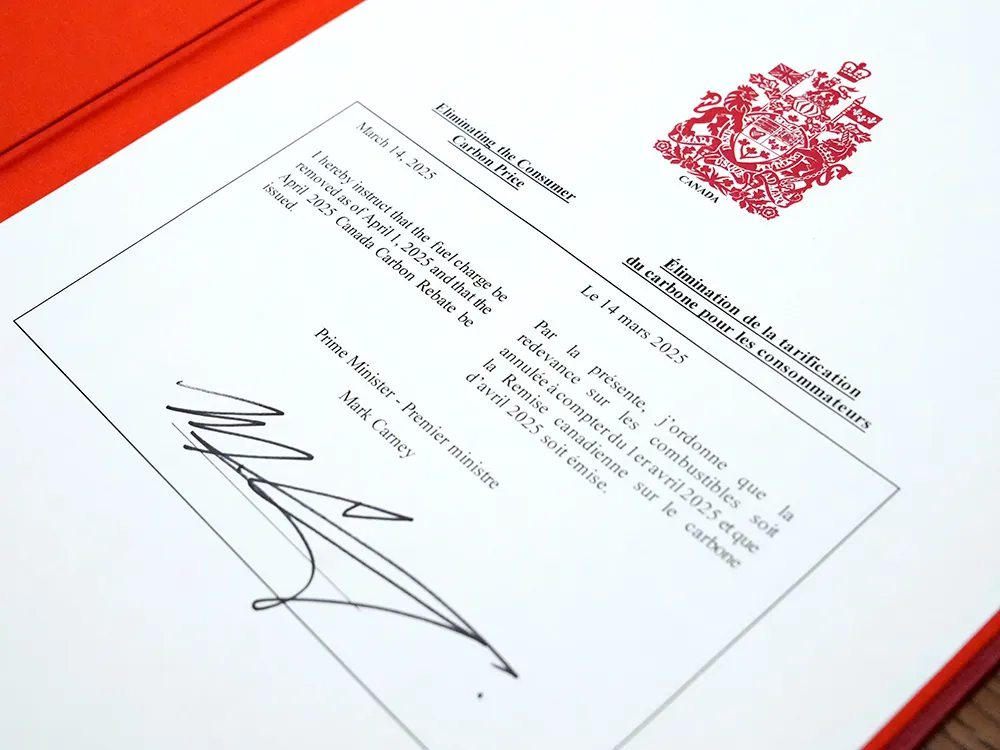
The Canadian real estate market is no stranger to economic shifts and the latest policy change the removal of the consumer carbon tax could have a ripple effect on homeownership costs property investments and long term affordability. The movement to axe the tax has gained traction among homeowners and investors who are looking for relief from rising expenses. Here is what this means for homebuyers sellers and investors in the Greater Toronto Area GTA.
Breaking Down the Carbon Tax Repeal and the Call to Axe the Tax
Prime Minister Mark Carney recently announced the elimination of the consumer carbon tax a move that has sparked both political debates and economic discussions. While this policy shift has been widely publicized many homeowners and investors are asking the same question how will it affect real estate
As of March 31 2025 the federal government will set fuel charge rates to zero for households small businesses schools and hospitals. However heavy industries such as oil producers and gas power plants will continue to pay emissions based taxes. This distinction is key to understanding the potential impact on real estate costs.
The call to axe the tax has been a major rallying point in recent years with many Canadians advocating for lower costs on everyday expenses. With this policy shift some believe it marks a significant victory in efforts to reduce financial burdens on homeowners and businesses alike.
How This Policy Shift Affects Homeowners and Their Efforts to Axe the Tax
For GTA homeowners the removal of the consumer carbon tax may lead to reduced costs for heating electricity and transportation three major expenses tied to homeownership. With Ontarios winters requiring heavy heating usage homeowners could see lower utility bills over time making homeownership slightly more affordable. However experts caution that long term energy costs are influenced by more than just tax policy including supply chain disruptions and global energy prices.
Additionally with lower operational costs for homes there could be increased buyer confidence in the market potentially driving demand for properties in suburban and rural areas where larger homes typically come with higher heating and transportation expenses. The push to axe the tax has particularly resonated with suburban homeowners who often face higher utility and commuting costs.
Implications for Real Estate Investors
For real estate investors the elimination of the consumer carbon tax brings both opportunities and uncertainties
- Lower Operating Expenses Investors managing rental properties could experience a reduction in monthly costs making certain properties more profitable.
- Increased Tenant Affordability If energy savings are passed down to tenants rental units could become more attractive to renters potentially decreasing vacancy rates.
- Policy Reversal Risks Some political experts suggest that future governments could reinstate carbon pricing meaning investors should plan for long term contingencies.
Many investors who supported the call to axe the tax see this as a beneficial shift for long term profitability and rental market stability. However they remain cautious about potential policy reversals that could reintroduce these costs.
Market Reactions and Future Outlook
While the elimination of the carbon tax aligns with the preferences of many Canadians especially those facing affordability concerns it does not directly change home prices. The real estate market will still be influenced by interest rates housing supply and inflation. That said the potential for lower household expenses could contribute to renewed confidence in homeownership which may indirectly support housing demand in the GTA.
For many first time homebuyers the decision to axe the tax is seen as a step toward making homeownership more accessible particularly in a market where affordability remains a top concern.n.
What Should Homebuyers and Sellers Do Now
If you are a homebuyer consider how reduced homeownership costs may impact your purchasing power. For sellers market confidence could mean more competitive pricing particularly in areas where heating and transportation costs were previously a major deterrent.
As policies continue to evolve staying informed is crucial. Follow our blog for the latest insights into the GTA real estate market or Contact our team for personalized advice on buying selling or investing in todays dynamic landscape.
Contact Us
Equip yourself with the knowledge to navigate the complexities of the real estate landscape confidently.



